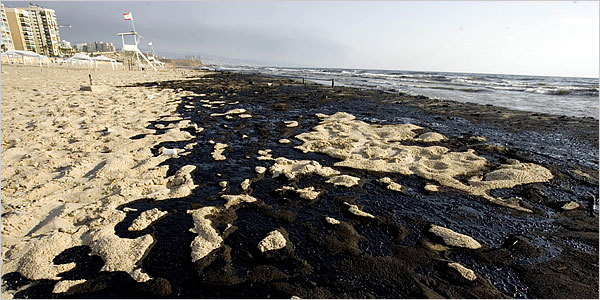Researchers have developed an eco-friendly biodegradable green “herding” agent that can be used to clean up light crude oil spills on water.
The new substance would potentially replace chemical herders used currently. It is derived from the plant-based small molecule “phytol” abundant in the marine environment.
The best known chemical herders are chemically stable, non-biodegradable, and hence remain in the marine ecosystem for years.
The goal of the researchers was to develop an eco-friendly herding molecule as an alternative to the current silicone-based polymers.
When added to a liquid, like seawater, herding agents are surface-active molecules (surfactants) that reduces the surface tension.
In the case of oil spills, when they are added along the periphery of an oil spill slick, they contract and thicken the slick or push slicks together so that they can be collected or burned.
This eco-friendly biodegradable solution is developed by City College of New York researchers led by chemist George John.
Causes of Large Oil Spills
In the period 1970 to 2014, 50% of large spills occurred while the vessels were underway in open water. During this type of operation, 59% were caused by collisions and groundings. These same causes accounted for an even higher percentage of incidents when the vessel was underway in inland or restricted waters, being linked to some 99% of spills.





